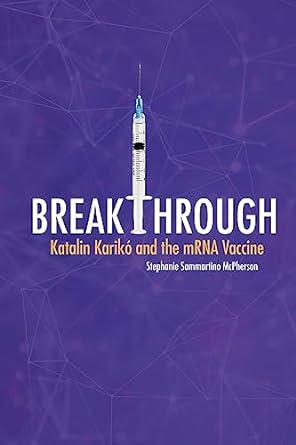2018 School Spending Survey Report
Breakthrough: Katalin Karikó and the mRNA Vaccine
Lerner/Twenty-First Century.
Nov. 2023.
136p.
Tr $38.65. ISBN 9798765607947.
COPY ISBN
VERDICT This biography is timely as Karikó (along with Weissman) recently won the 2023 Nobel Prize in Physiology or Medicine. Accessible writing and thorough research make this a great science resource for middle and high school students. Recommended.
RELATED
ALREADY A SUBSCRIBER? LOG IN
We are currently offering this content for free. Sign up now to activate your personal profile, where you can save articles for future viewing





Be the first reader to comment.
Comment Policy:
Comment should not be empty !!!